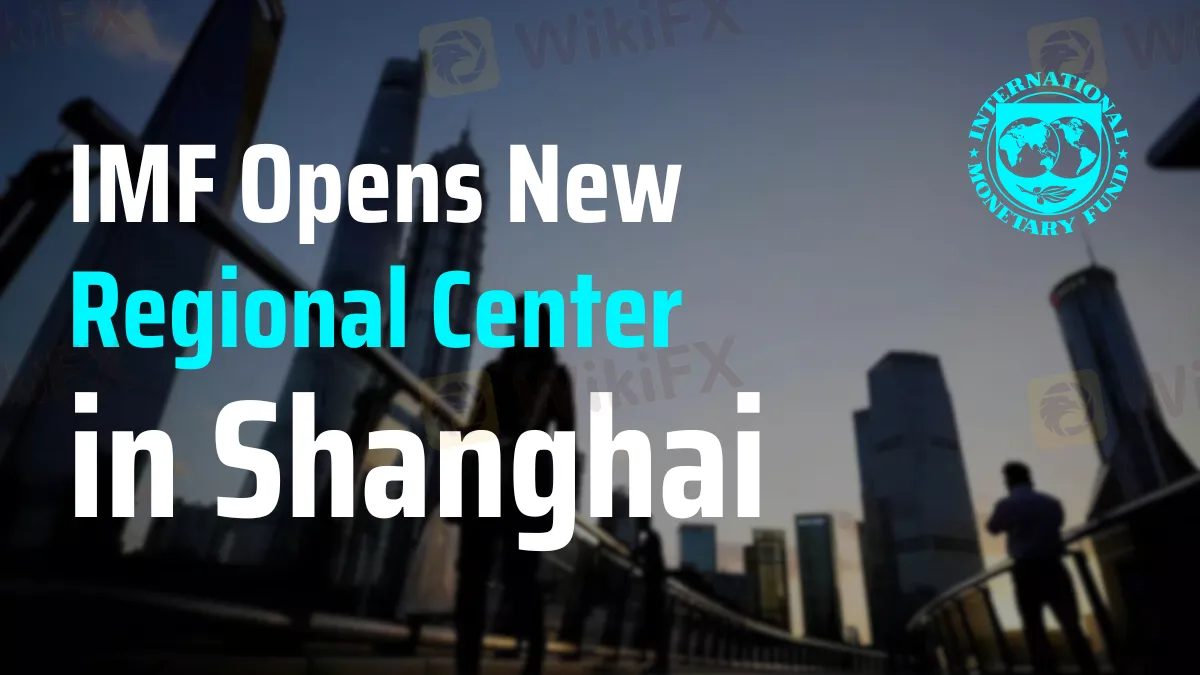IG Boosts Cash Interest, Drops Account Fees for UK Investors
IG raises rates on uninvested cash and removes inactivity fees, joining a growing trend among brokers targeting UK retail investors.
简体中文
繁體中文
English
Pусский
日本語
ภาษาไทย
Tiếng Việt
Bahasa Indonesia
Español
हिन्दी
Filippiiniläinen
Français
Deutsch
Português
Türkçe
한국어
العربية
Abstract:International Monetary Fund (IMF) launches a new regional center in Shanghai to boost Asia-Pacific cooperation and policy research.

The International Monetary Fund (IMF) has opened a new regional center in Shanghai, China, with the goal of increasing its participation and collaborations across the Asia-Pacific region. In order to improve economic cooperation and policy coordination among emergent markets and middle-income countries in the region, this strategic initiative, which was announced in partnership with the People's Bank of China (PBoC), represents a substantial stride.
In order to address the economic landscape of the region, the Shanghai Regional Center will function as a focal point for policy research and dialogue. The center endeavors to enhance the IMF's involvement in regional economic matters by cultivating close relationships with member countries and a variety of stakeholders, such as international financial institutions, academicians, think institutes, the private sector, and civil society organizations (CSOs).
The center's mission is fundamentally centered on the promotion of targeted capacity building. In conjunction with the China IMF Capacity Development Center (CICDC), this will be accomplished through initiatives such as peer-to-peer learning. The co-location of the CICDC with the new Shanghai center is designed to optimize resources and generate synergies, thereby improving the efficacy of the IMF's capacity development initiatives.

Pan Gongsheng, Governor of the People's Bank of China, conveyed his endorsement of the new center, stating, “We are pleased to see the IMF Regional Center in Shanghai.” We are confident that the Shanghai Regional Center will strengthen the collaboration between the IMF and China, improve the exchange and coordination of macroeconomic policy among the Asia-Pacific countries, and contribute to the stability of the global and regional financial systems.
The establishment of this facility serves as a testament to China's dedication to the IMF's mission. Financial contributions from the Chinese government have been instrumental in the establishment of the Shanghai Regional Center and the enhancement of capacity development through the CICDC.

IMF Managing Director Kristalina Georgieva emphasized the importance of this move, stating, I appreciate the crucial initiative with the People's Bank of China to create the Shanghai Regional Center. The IMF's involvement in the dynamic Asia-Pacific region will be further fortified by the center, which will also enhance our comprehension of the perspectives of member countries and promote international economic cooperation.
The Shanghai Regional Center is well-positioned to complement the IMF's current regional centers and offices, which perform distinct functions but collaborate to improve global financial stability. This new institution is intended to have a significant impact on setting economic policy and boosting international collaboration in one of the world's most economically vibrant areas.

Disclaimer:
The views in this article only represent the author's personal views, and do not constitute investment advice on this platform. This platform does not guarantee the accuracy, completeness and timeliness of the information in the article, and will not be liable for any loss caused by the use of or reliance on the information in the article.

IG raises rates on uninvested cash and removes inactivity fees, joining a growing trend among brokers targeting UK retail investors.

Gold surges past $4,500 amid global unrest and rate-cut expectations, with investors eyeing the upcoming US jobs and PMI reports.

Police busted 97 online scam cases and seized more than RM5 million, in a series of integrated operations conducted in the capital throughout last year.

A global crypto transparency era begins as 48 countries enforce CARF rules; data-sharing to combat tax evasion expands worldwide by 2029.
